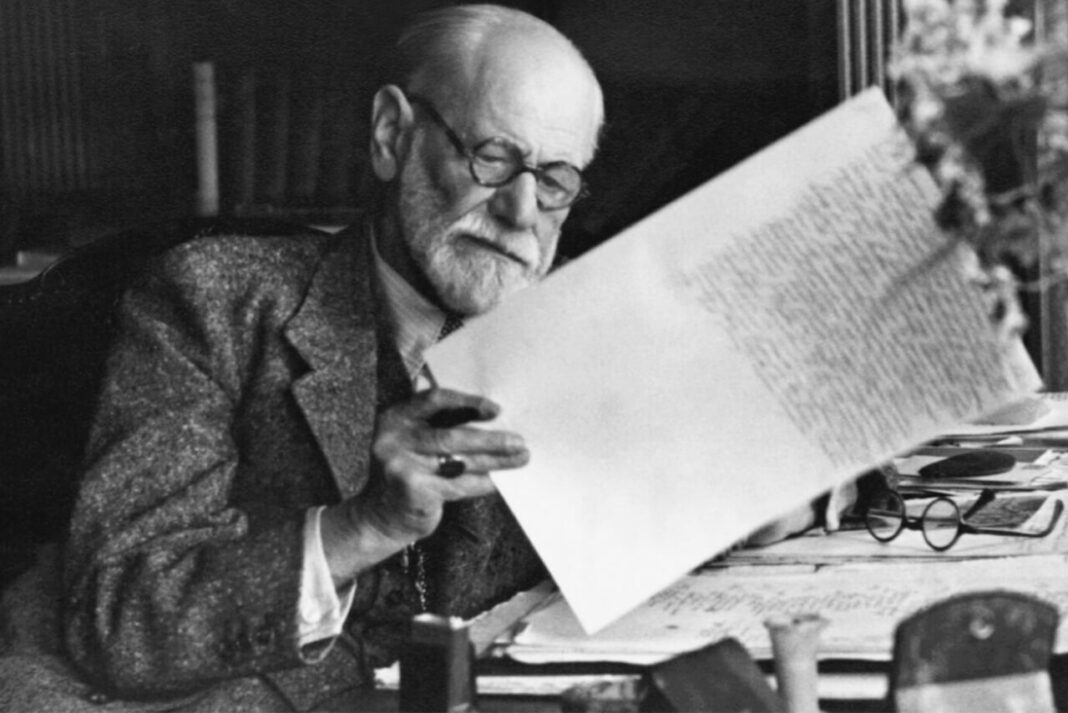Sigmund Freud. The name probably rings a bell. Imagine a curious Austrian neurologist, born in 1856 in Moravia and who spent most of his life in Vienna. Freud was fascinated by the mysteries of the mind, especially puzzling conditions like hysteria and neurosis that baffled doctors of his era. He is seen as the founder of psychoanalysis, not just for launching a new school of thought, but for introducing ideas that changed how we think about ourselves and our hidden motivations.
With psychoanalysis, Freud put the idea of the unconscious front and center. Others had thought about the unconscious before, but Freud was the one who made it the main character, using real cases and clinical work to back up his theories (Schelling & Platner, as cited in Wikipedia, 2025). This fresh way of looking at mental illness sparked debate—some saw it as a breakthrough, others were skeptical. Beyond medicine, Freud’s ideas seeped into how we talk about desire, childhood, art, and the complicated parts of who we are (Lesso, 2025).
In this essay, we will look at why Freud and psychoanalysis are so important. We will examine Freud’s contributions, his theories and ideas, the criticized aspects of his work, how psychoanalysis still influences psychology today, and what kind of legacy Freud left behind.
During Freud’s lifetime, 19th-century Europe experienced scientific advances such as Darwin’s theory of evolution and developments in neuroscience, alongside philosophical debates about human nature, free will, and consciousness. Sexuality was a social taboo, and repressed desires shaped invisible rules of daily life. Freud’s education in medicine and neurology led him to think about human behavior on biological and physiological grounds. The cultural atmosphere of Vienna and Europe at the time pushed him to develop the concepts of repression and the unconscious. Along with his own observations and his patients’ experiences, these shaped the systematization of psychoanalysis (OpenPMC, 2023).
Psychoanalysis and the Unconscious
So, what is psychoanalysis? It is a school of thought that aims to understand human behavior and mental processes through the influence of the unconscious. According to Freud, the unconscious is a pool of thoughts, feelings, memories, and desires that a person is not aware of. Even if we are not conscious of it, many things that affect our behavior and decisions are products of our unconscious. For example, Freud saw dreams as the “royal road” to the unconscious. Slips of the tongue, obsessions, and certain reactions are also expressions of it. Accidentally saying “furious” instead of “serious” is one example (Verywell Mind, 2012). At the same time, socially unacceptable desires are repressed into the unconscious, which can lead to psychological problems. In short, the unconscious is the locked door of our mind; though hidden, it largely influences our actions and thoughts (McLeod, 2024).
Structure of Personality: Id, Ego, Superego
Freud also described the structure of personality: id, ego, and superego. The id is primitive, operating on the pleasure principle and driven by instincts like hunger or sexuality. The superego represents the moral and social side of personality, linked to conscience and societal teachings. The ego acts as a bridge between the id and superego, balancing impulses and rules rationally. If these structures fail to function properly, the balance of personality is disrupted and psychological problems may emerge (McLeod, 2019).
Psychosexual Stages
Another concept is Freud’s psychosexual stages of development, which determine how personality is shaped during childhood. If any stage is not successfully navigated, later development may be affected; this is called fixation. The oral stage (0–1 year) centers on the mouth and basic needs. The anal stage (1–3 years) involves toilet training and develops control and organization. The phallic stage (3–6 years) is when sexual identity and gender awareness develop, along with the Oedipus complex (where a boy unconsciously feels love for his mother and rivalry with his father). (The female equivalent, the “Electra complex,” was more emphasized by Carl Jung than Freud.) The latent stage (6–12 years) is marked by the repression of sexual impulses while social learning grows. Finally, the genital stage (12 years onward) involves mature sexual identity and adult relationships (Cherry, 2021).
Defence Mechanisms
A concept strongly linked to Freud is defence mechanisms. When the ego cannot cope with conflicts, it develops defence mechanisms to protect the mind. Repression pushes disturbing thoughts into the unconscious. Denial is the refusal to accept reality. Projection attributes one’s unacceptable feelings to others. These are just a few of the most well-known defence mechanisms. Defence mechanisms became fundamental explanations for coping with psychological conflicts.
Criticism of Freud
Psychoanalytic theories, personality structure, psychosexual development, and defence mechanisms gradually became reference points in psychology. They provided a deeper perspective on understanding human behavior and shaped therapeutic approaches and cultural understanding. But Freud was also criticized. Many considered his emphasis on sexual drives excessive. His focus on childhood sexuality was regarded as exaggerated by some. His ideas on female psychology were criticized by feminist theorists as sexist or incomplete.
Legacy of Psychoanalysis
Despite these criticisms, Freud highlighted the importance of early childhood experiences and repressed conflicts in psychotherapy. Concepts such as “ego” and “repressed emotion” are still used in popular culture and everyday conversation. Dreams, desires, and unconscious motivations inspired new themes in literature and art. His ideas were further developed or reinterpreted by Carl Jung, Alfred Adler, and Erik Erikson. Post-generation therapists like Melanie Klein, Anna Freud, and Donald Winnicott advanced psychoanalysis into modern psychodynamic therapies (American Psychological Association, n.d.).
Freud’s contributions to psychoanalysis and the understanding of the human mind are undeniable. He left a lasting impact on psychology and cultural thought. He continues to be regarded as one of the most prominent theorists today and will likely remain so for many years to come.


